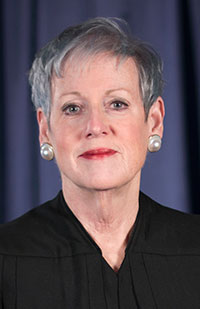New Magistrates Learn the Ropes Virtually

Chief Justice Maureen O’Connor welcomes new magistrates during a recent three-day virtual conference.

Chief Justice Maureen O’Connor welcomes new magistrates during a recent three-day virtual conference.
The Ohio Supreme Court hosted 79 of its new judicial officers as part of the annual magistrate’s orientation.
However, due to the global pandemic, the three-day conference was held remotely.
This year marks a critical milestone. There are 882 magistrates working across Ohio’s appellate and trial courts, compared with 722 judgeships in the state.
“We are charged with dispensing justice faithfully and impartially,” Chief Justice Maureen O’Connor, herself a former magistrate, told the group.
“Try to view your day not as dealing with cases, but as dealing with people who have a problem that needs to be solved,” she said.
The orientation – organized by the Court’s Judicial College – is created to help attendees evaluate and improve their decision-making skills.
“The virtual conference was very well organized despite the challenges of being remote,” said Carol Tran, a magistrate for the Summit County Common Pleas Court.
“The speakers were passionate about their presentation subjects,” she said. “I also thought the efforts to engage the crowds was good with the use of ‘raising hands’, polling and breakout sessions.”
Unlike judges, magistrates are not elected. Instead, they’re appointed by a judge and operate under the supervision of that elected judge.
The reasons they accept the positions can vary from a needed professional change to a situation that allows them to interpret the law as opposed to being advocates for their clients.
Magistrates handle most types of cases in a specific court where cases can be appealed to a judge.
"The New Magistrate Orientations provided a wealth of information to add to my toolbox,” said Tasha Ruth, magistrate for the Fourth District Court of Appeals. “The legal writing seminar was particularly helpful for the work that I do on a daily basis.”
“While meeting in person would have been ideal, the Judicial College provided an excellent interactive forum to learn, communicate, and test our skills,” Ruth said. “I enjoyed hearing from other magistrates from a variety of jurisdictions."
These magistrates will continue their education throughout their tenure on the bench. Ohio magistrates must complete 40 hours of continuing legal education, including 10 hours of instruction offered by the Judicial College, every two years.


